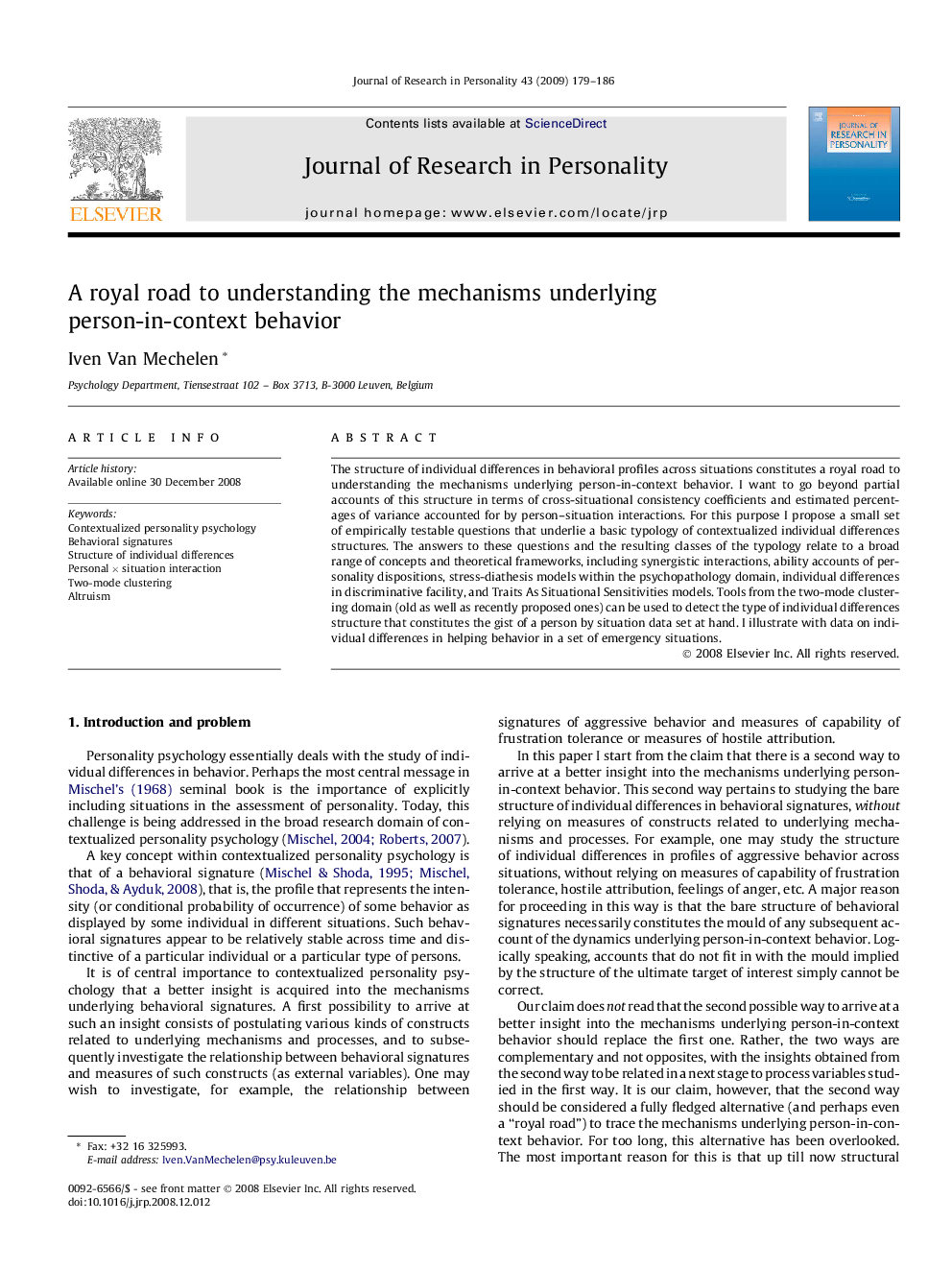| Article ID | Journal | Published Year | Pages | File Type |
|---|---|---|---|---|
| 951640 | Journal of Research in Personality | 2009 | 8 Pages |
The structure of individual differences in behavioral profiles across situations constitutes a royal road to understanding the mechanisms underlying person-in-context behavior. I want to go beyond partial accounts of this structure in terms of cross-situational consistency coefficients and estimated percentages of variance accounted for by person–situation interactions. For this purpose I propose a small set of empirically testable questions that underlie a basic typology of contextualized individual differences structures. The answers to these questions and the resulting classes of the typology relate to a broad range of concepts and theoretical frameworks, including synergistic interactions, ability accounts of personality dispositions, stress-diathesis models within the psychopathology domain, individual differences in discriminative facility, and Traits As Situational Sensitivities models. Tools from the two-mode clustering domain (old as well as recently proposed ones) can be used to detect the type of individual differences structure that constitutes the gist of a person by situation data set at hand. I illustrate with data on individual differences in helping behavior in a set of emergency situations.
